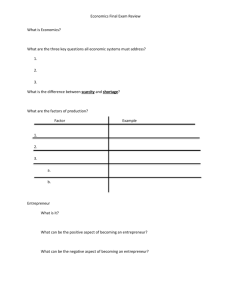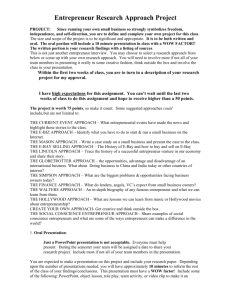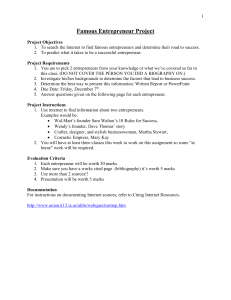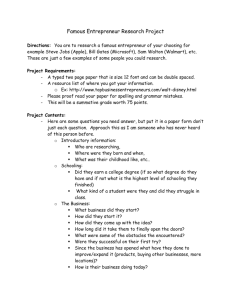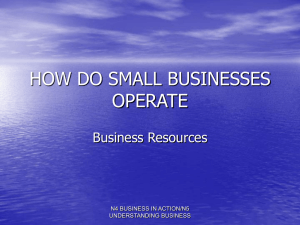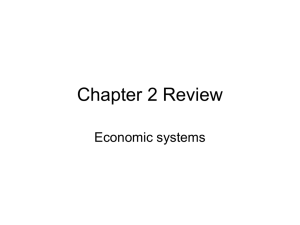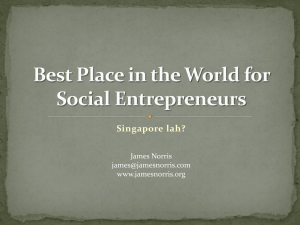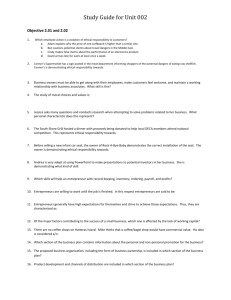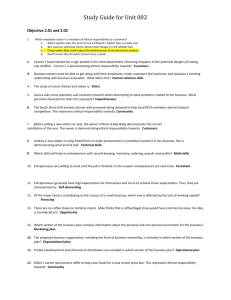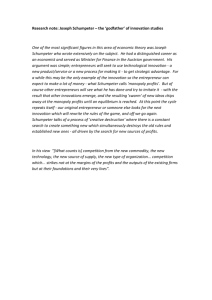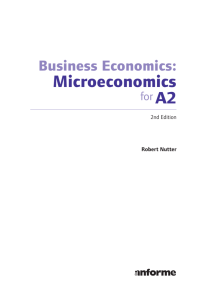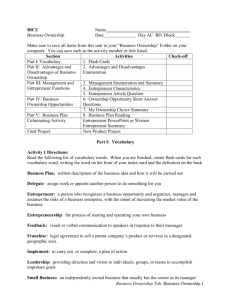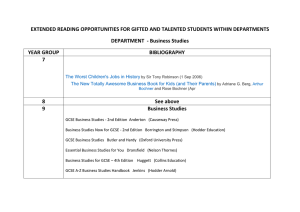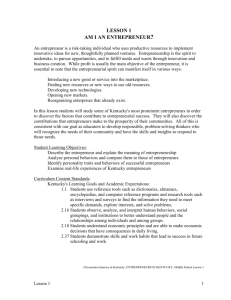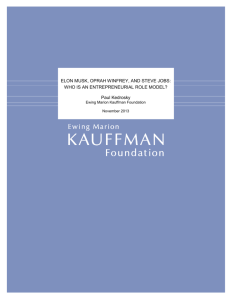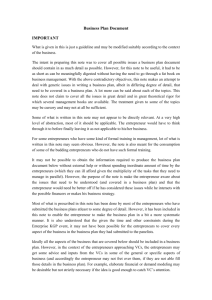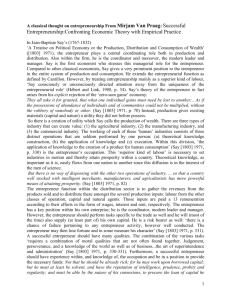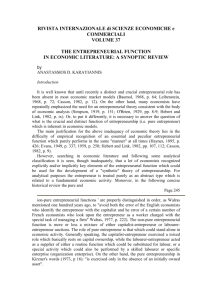The Political Entrepreneur – Deus ex Machina of Public Choice
advertisement
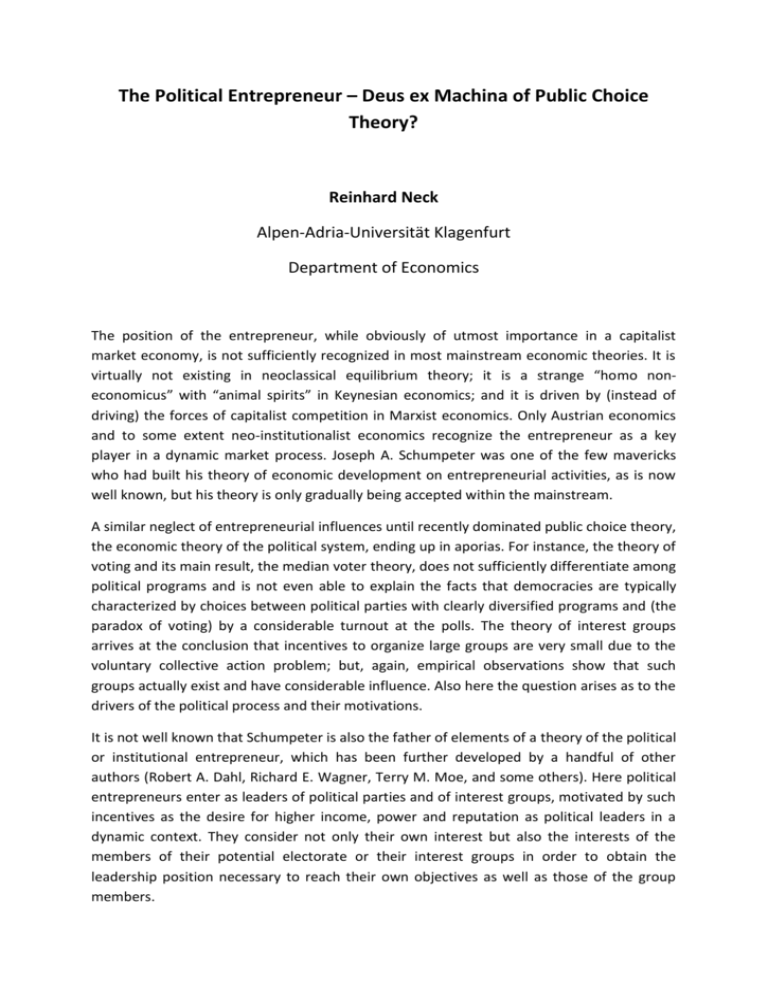
The Political Entrepreneur – Deus ex Machina of Public Choice Theory? Reinhard Neck Alpen-Adria-Universität Klagenfurt Department of Economics The position of the entrepreneur, while obviously of utmost importance in a capitalist market economy, is not sufficiently recognized in most mainstream economic theories. It is virtually not existing in neoclassical equilibrium theory; it is a strange “homo noneconomicus” with “animal spirits” in Keynesian economics; and it is driven by (instead of driving) the forces of capitalist competition in Marxist economics. Only Austrian economics and to some extent neo-institutionalist economics recognize the entrepreneur as a key player in a dynamic market process. Joseph A. Schumpeter was one of the few mavericks who had built his theory of economic development on entrepreneurial activities, as is now well known, but his theory is only gradually being accepted within the mainstream. A similar neglect of entrepreneurial influences until recently dominated public choice theory, the economic theory of the political system, ending up in aporias. For instance, the theory of voting and its main result, the median voter theory, does not sufficiently differentiate among political programs and is not even able to explain the facts that democracies are typically characterized by choices between political parties with clearly diversified programs and (the paradox of voting) by a considerable turnout at the polls. The theory of interest groups arrives at the conclusion that incentives to organize large groups are very small due to the voluntary collective action problem; but, again, empirical observations show that such groups actually exist and have considerable influence. Also here the question arises as to the drivers of the political process and their motivations. It is not well known that Schumpeter is also the father of elements of a theory of the political or institutional entrepreneur, which has been further developed by a handful of other authors (Robert A. Dahl, Richard E. Wagner, Terry M. Moe, and some others). Here political entrepreneurs enter as leaders of political parties and of interest groups, motivated by such incentives as the desire for higher income, power and reputation as political leaders in a dynamic context. They consider not only their own interest but also the interests of the members of their potential electorate or their interest groups in order to obtain the leadership position necessary to reach their own objectives as well as those of the group members. In this paper, we give an outline of the theory of the political entrepreneur and of some empirical results about his/her role and influence on politics, the economy and, more generally, the institutions of a society. Although the political entrepreneur is often accused of exerting an unproductive influence by rent-seeking behaviour, there are also cases where he/she has a productive role in risk taking and information collection and, above all, contributing to the institutional preconditions of a democracy. We give examples of studies demonstrating both productive and unproductive activities of political entrepreneurs and illustrate the interplay of political entrepreneurs and institutions, which also sheds some light on the conditions of successful political entrepreneurship. Examples from Russia, China and other countries show the importance of the institutional framework for the effects of political entrepreneurs in an emerging or a mature capitalist market economy. It turns out that the political entrepreneur and his/her influence plays a role in politics which is comparable but not completely equal to that of the entrepreneur in business.
